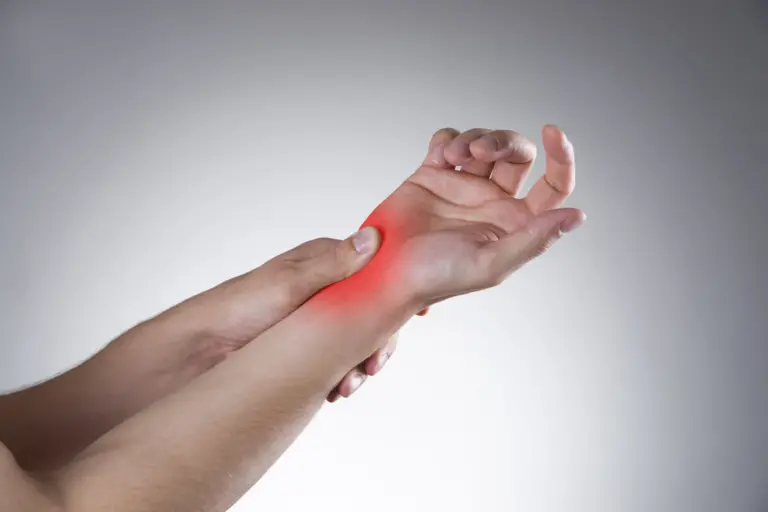Chiropractic Acupuncture Massage Therapy Physiotherapy DIRECT BILLING CALL NOW 306-954-4242 Orthotics Compression Stockings Orthopedic Bracing Chiropractic Acupuncture Massage Therapy Physiotherapy DIRECT BILLING CALL NOW 306-954-4242 Orthotics Compression Stockings Orthopedic Bracing
Chiropractic Acupuncture Massage Therapy Physiotherapy DIRECT BILLING CALL NOW 306-954-4242 Orthotics Compression Stockings Orthopedic Bracing Chiropractic Acupuncture Massage Therapy Physiotherapy DIRECT BILLING CALL NOW 306-954-4242 Orthotics Compression Stockings Orthopedic Bracing

Carpal Tunnel Treatment Without Surgery
Carpal tunnel syndrome (CTS) is one of the most common conditions affecting the wrist and hand, yet many misconceptions surround it. Most people associate CTS solely with wrist issues, but this debilitating condition often involves the nerves in the neck as well. At Axis Health Center, we specialize in non-surgical treatments that address the root causes of carpal tunnel syndrome to provide lasting relief and improve your quality of life. Most cases of carpal tunnel do not need surgery to be treated. Our expert healthcare providers treat and reduce carpal tunnel without surgery or drugs!
In this article, we’ll explore the causes of carpal tunnel syndrome, the role of the median nerve, how the condition connects to the neck, and effective, non-invasive treatments like chiropractic care, physiotherapy, acupuncture, and massage therapy.
What Is Carpal Tunnel Syndrome?
Carpal tunnel syndrome is a condition caused by the compression of the median nerve as it travels through the carpal tunnel in the wrist. This narrow passageway is formed by bones and ligaments and houses the median nerve along with several tendons.
When this tunnel becomes restricted—due to inflammation, repetitive strain, or injury—it places pressure on the median nerve, causing the hallmark symptoms of CTS:
- Numbness or tingling in the thumb, index, and middle fingers
- Weakness in the hand or difficulty gripping objects
- Pain that can radiate from the wrist up to the arm
Who Is at Risk for Carpal Tunnel Syndrome?
Several factors can increase the likelihood of developing CTS, including:
- Repetitive hand or wrist movements (e.g., typing, assembly line work)
- Poor wrist positioning during work or daily activities
- Underlying health conditions like diabetes or hypothyroidism
- Pregnancy-related fluid retention
- Trauma or wrist injuries
The Role of the Median Nerve in Carpal Tunnel Syndrome
The median nerve is a major nerve that starts in the cervical spine (neck) and travels through the shoulder, arm, and wrist, ultimately controlling sensation and movement in parts of the hand.
The Neck and Wrist Connection: The Double-Crush Phenomenon
While carpal tunnel syndrome is most often associated with the wrist, many cases involve issues in the cervical spine that affect the median nerve.
This is known as the double-crush phenomenon, where the nerve is compressed at multiple points along its path. Misalignments in the neck, muscle tightness, or nerve irritation in the cervical spine can exacerbate median nerve dysfunction, making wrist symptoms worse.
By focusing only on the wrist, conventional treatments often overlook these contributing factors, leading to recurring symptoms.
Symptoms of Carpal Tunnel Syndrome: More Than Just Wrist Pain
Carpal Tunnel symptoms can range from mild to severe and may worsen over time without treatment.
Carpal Tunnel Symptoms Include:
- Tingling or numbness in the thumb, index, middle, and ring fingers
- Pain that may radiate to the forearm or shoulder
- Weakness in the hand, making it difficult to grasp or hold objects
- A feeling of “pins and needles,” particularly at night or upon waking
Recognizing these symptoms early and addressing the underlying causes can help prevent progression and the need for invasive procedures.
How Axis Health Center Treats Carpal Tunnel Syndrome
At Axis Health Center, we offer a holistic approach to treating carpal tunnel syndrome, addressing the condition from multiple angles to reduce pain, improve function, and prevent recurrence. Our non-surgical treatments include chiropractic care, physiotherapy, acupuncture, and massage therapy.
1. Chiropractic Care for Carpal Tunnel Syndrome
Chiropractic adjustments play a crucial role in relieving nerve compression. By aligning the cervical spine, chiropractors reduce pressure on the median nerve at its source.
Key benefits of chiropractic care:
- Improves spinal alignment and posture
- Reduces nerve irritation in the neck
- Addresses the double-crush phenomenon
- Promotes overall nervous system function
Chiropractic care often provides long-term relief, as it treats the underlying cause rather than masking the symptoms.
2. Physiotherapy: Strengthening and Stabilizing
Physiotherapy is a cornerstone of carpal tunnel treatment, focusing on strengthening muscles and improving flexibility to prevent further strain on the wrist and neck.
What to Expect in Physiotherapy:
- Stretching exercises to improve flexibility in the wrist, forearm, and neck
- Strengthening exercises to stabilize the wrist and improve grip strength
- Postural training to correct misalignments that contribute to nerve compression
- Ergonomic recommendations to minimize repetitive strain in daily activities
Physiotherapy not only relieves current symptoms but also helps prevent future occurrences.
3. Acupuncture for Pain and Inflammation
Acupuncture is an ancient healing technique that can provide significant relief for carpal tunnel syndrome. By targeting specific points along the body’s energy pathways, acupuncture:
- Reduces inflammation and swelling
- Promotes circulation to the affected areas
- Relieves pain and restores mobility
Patients often notice an improvement in their symptoms after just a few sessions, making acupuncture a highly effective complement to other treatments.
4. Massage Therapy: Releasing Tension Along the Nerve Pathway
Massage therapy addresses muscle tightness and tension in the neck, shoulders, arms, and hands, which can contribute to nerve compression.
Benefits of Massage Therapy for CTS:
- Reduces muscle tightness along the median nerve’s pathway
- Improves circulation and promotes healing
- Relieves stress and enhances overall relaxation
Massage therapy is particularly beneficial for patients with double-crush syndrome, as it targets both neck and wrist tension.
The Benefits of Non-Surgical Treatments for Carpal Tunnel Syndrome
Non-invasive treatments like chiropractic care, physiotherapy, acupuncture, and massage therapy offer several advantages over surgical interventions:
- No recovery downtime
- Lower risk of complications
- Holistic approach to overall health
- Prevention of recurrence by addressing root causes
Why Choose Axis Health Center?
At Axis Health Center, we take a personalized approach to treating carpal tunnel syndrome. We understand that every patient’s experience is unique, and we tailor our treatment plans to address your specific needs.
Our multidisciplinary team combines expertise in chiropractic care, physiotherapy, acupuncture, and massage therapy to deliver comprehensive care that gets results.
Take Action – Book Your Appointment Today!
If you’re experiencing wrist pain, tingling, or numbness, don’t let it disrupt your life. Carpal tunnel syndrome can worsen over time, but early intervention can prevent long-term complications and the need for surgery.
At Axis Health Center, we are committed to helping you achieve lasting relief and improved function through non-surgical, holistic treatments.
Don’t wait—take the first step toward a pain-free life today!
- Call us at 306-954-4242
Let our team of skilled professionals help you regain control of your life and enjoy your daily activities again.

